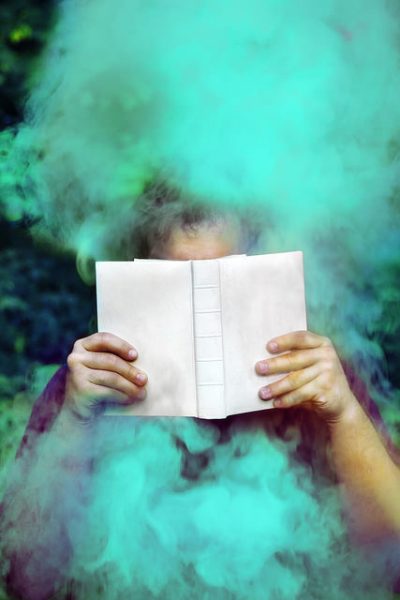What was the spark that lit this story?
I’m really interested in the ways that grief manifests through the strange and grotesque, because I think so often we expect grief to arrive in the form of obvious sadness (tears, denial, social withdrawal, etc.) And while I don’t discount these more common manifestations, I think there’s a lot to be said about the role of absurdity in our emotional processing, and even how that absurdity might be more honest than the perceived “normal.” I’m also intrigued by the ways that we attempt to keep people or relationships alive through physical objects and belongings, and how those things can act as a form of preservation for us. All of these ideas have been swirling in my head for the past few months, so when I sat down to write this story, my thought was How do we make grief physical? And the lobster suit was born.
I’ve taught a few creative writing classes and students always ask about revision. I find it a challenging topic to discuss, because every piece seems to require a different approach. Do you have a general approach to revision that you’ve found to be effective? What was it like revising “Lobster”?
Revision is the question I read every story, novel, interview, essay, craft book, and Tweet trying to find the answer to. For me, revision feels incredibly daunting because there is always that possibility that you’ll reach the point where you can no longer see your own work. You’re desensitized to it. But I’ve also realized that, no surprise here, another writer’s revision process probably won’t end up being my process. Mine is messy. I edit heavily while I’m writing a first draft (always a no-no in the revision discourse), I toy with a line for hours before I move on to the next one, I read and re-read what I’ve written/edited until I’m sick of it completely and have to leave it alone for a week. “Lobster” was no different. But it’s what works for me right now. I’ve tried thieving other writers’ tidier revision processes, but so far nothing has worked the way I want it to. Until it does, I’m okay with being messy.
An aspect of “Lobster” that I found particularly memorable is the wealth of sensory details. In the final scene, we have the scent of perfume, glittering jewels, the sensation of being immersed in a lobster suit, all while a concerto plays in the background. What are your thoughts about writing that appeals to the senses? Do you see this type of writing as particularly important in flash?
For me, the best flash often has a highly concentrated emotional complexity to it, and when you’re playing with the emotional—especially in the case of grief—it can be easy to slip into the sentimental. I find that funneling a reader’s focus toward sensory details not only grounds the story and avoids sentimentality, but it can also do a lot of reflective work. Writing that invokes the senses is automatically going to conjure up something visceral, and isn’t that the type of reaction we all love being subjected to as readers? (It can’t be just me.)
So yes, it’s something I play with in everything I write, but with flash I’m especially aware of how I can make language do more than one job in the limited space it inhabits.
Whose writing are you most excited to read these days? Is there a living writer (or a specific book) that more people need to be reading?
Absolutely everyone should read Annie Hartnett’s Rabbit Cake. I read this book about two years ago and have since tried to convince every person I know/meet to read it (five successes so far!). I don’t know of another author or book that has confronted death and the reverberation of it quite like this one, while also feeding my love for language and line-level play. If you’re into weird, quirky, sad things, read this book.
What are you working on currently?
I’m currently working on a collection of short stories that inhabit this strange/surreal/fantastic side of grief and loss. I’m also in the very (very) early stages of a novel project.



 The SmokeLong Grand Micro Contest (The Mikey) is now an annual competition celebrating and compensating the best micro fiction and nonfiction online.
The SmokeLong Grand Micro Contest (The Mikey) is now an annual competition celebrating and compensating the best micro fiction and nonfiction online.